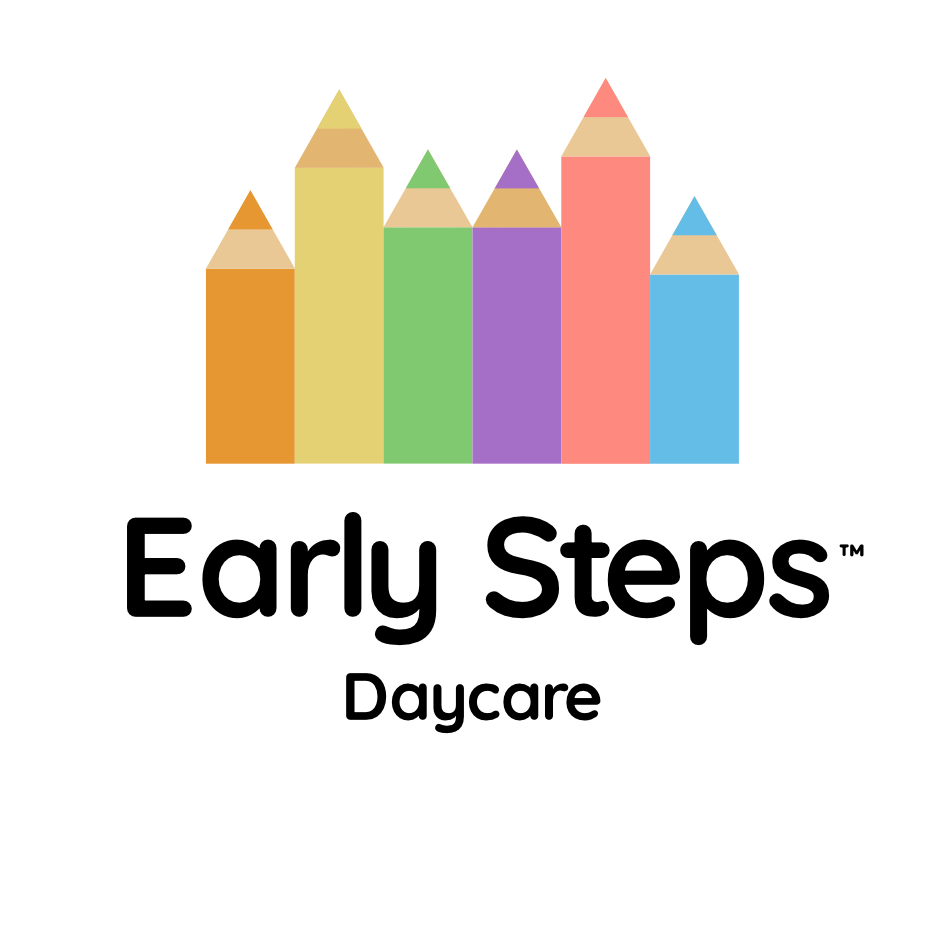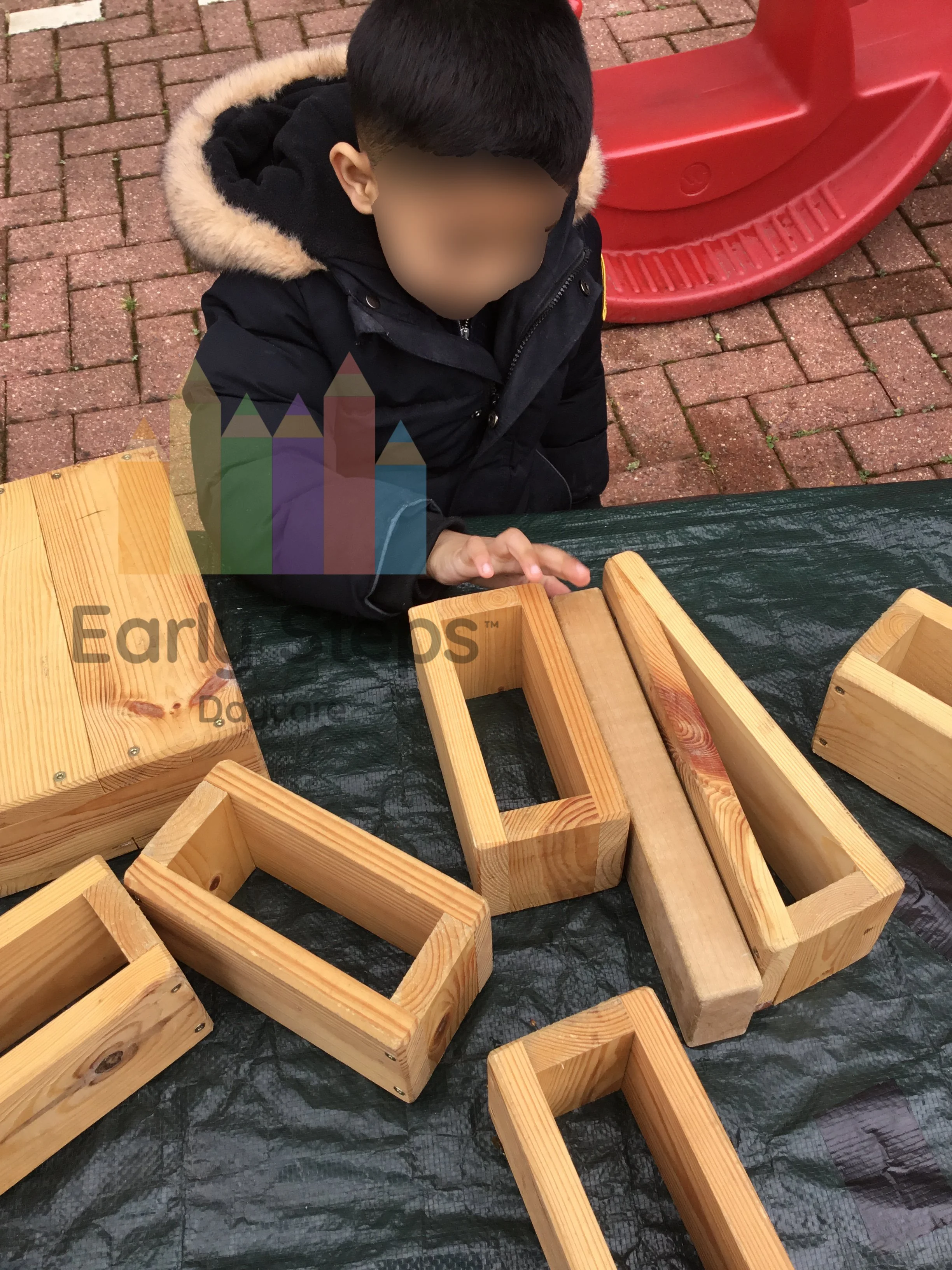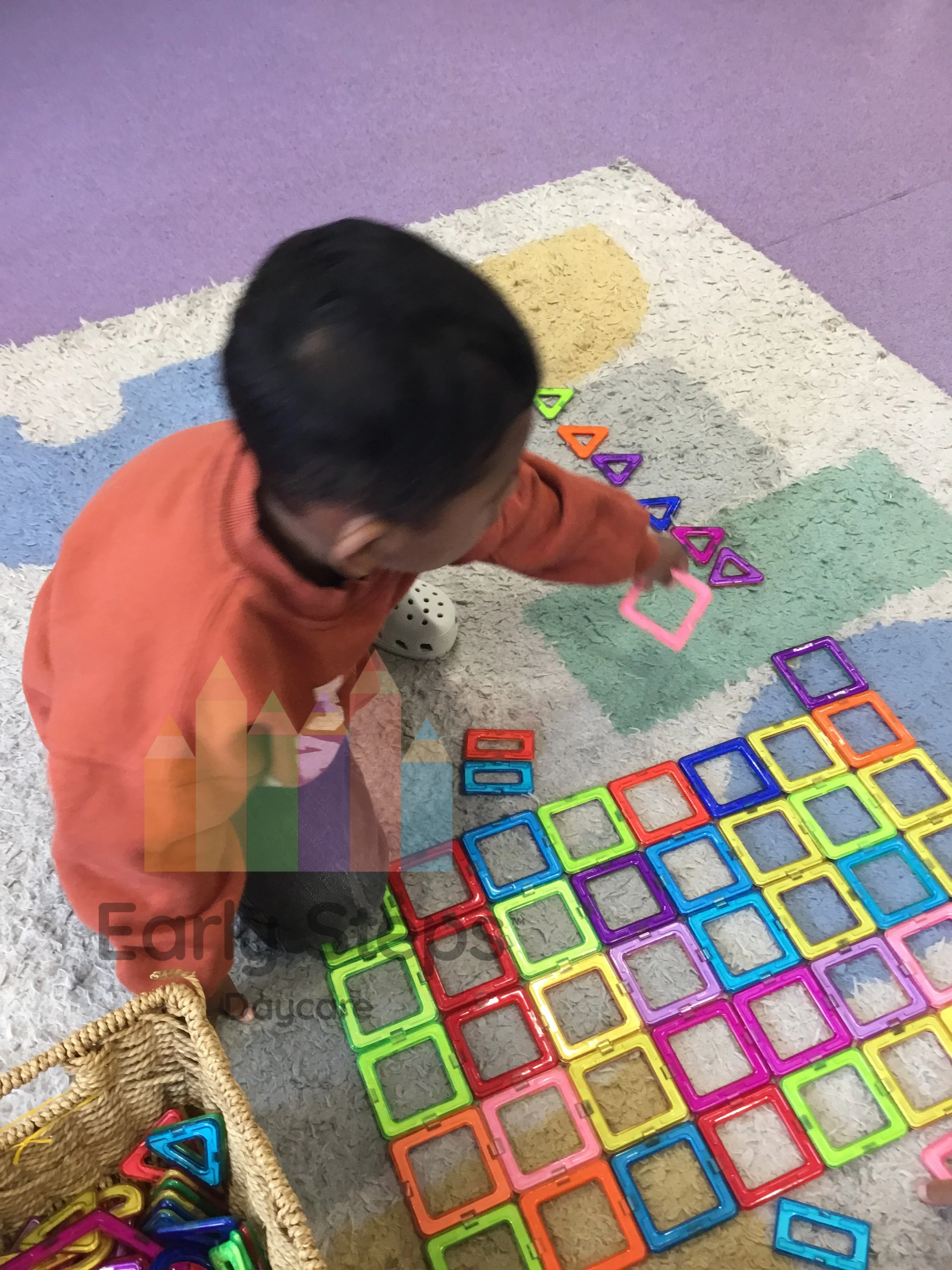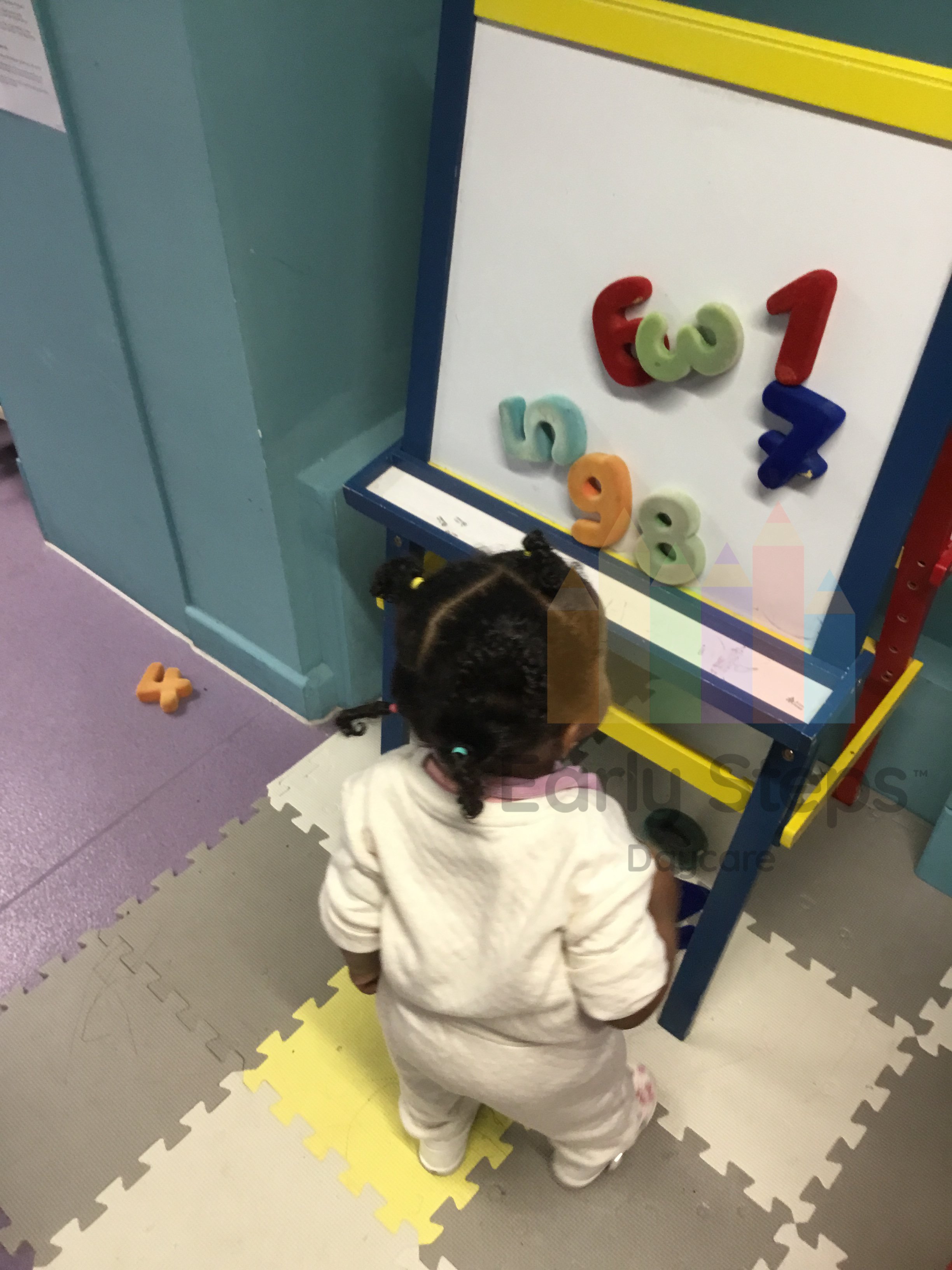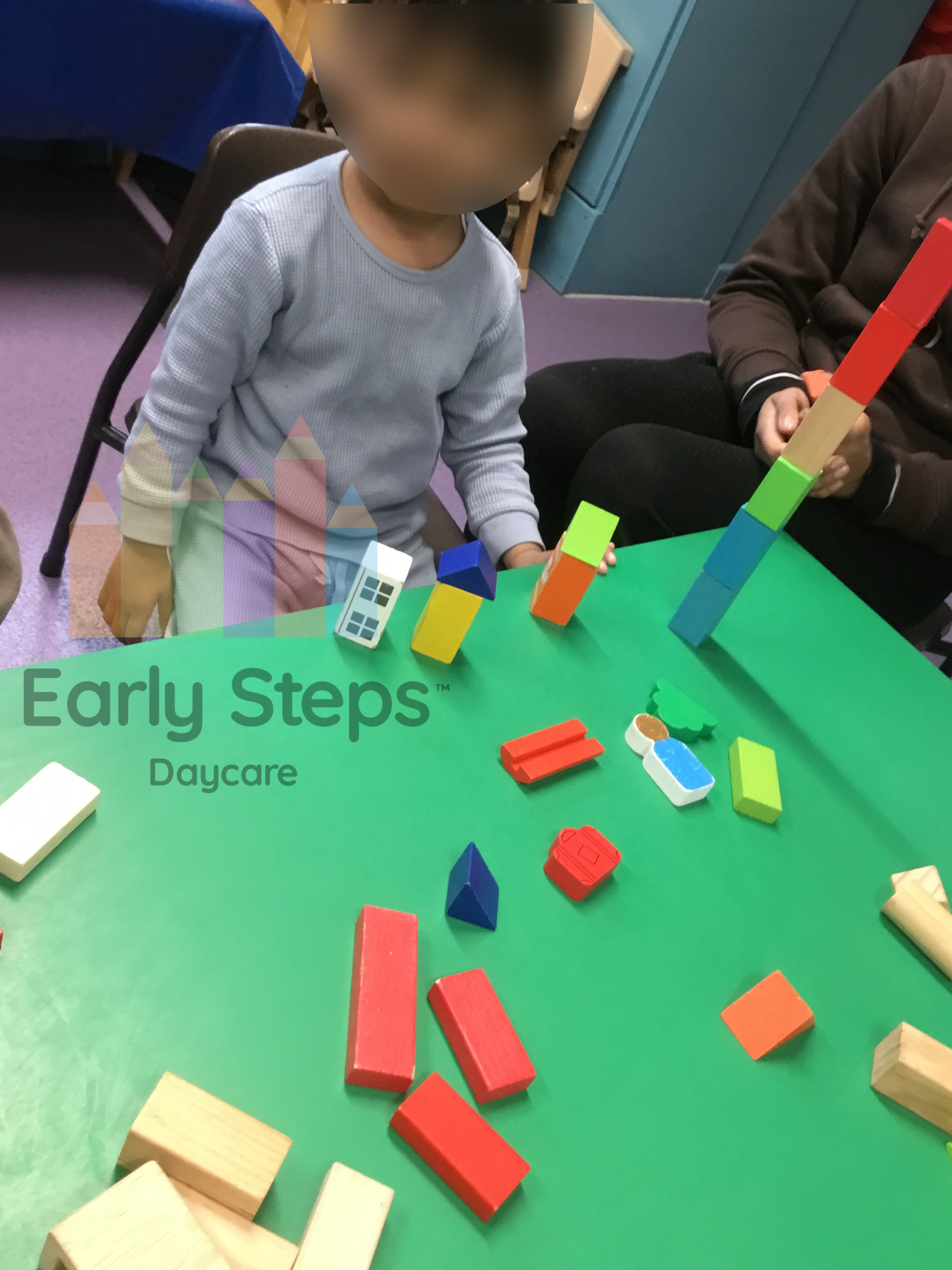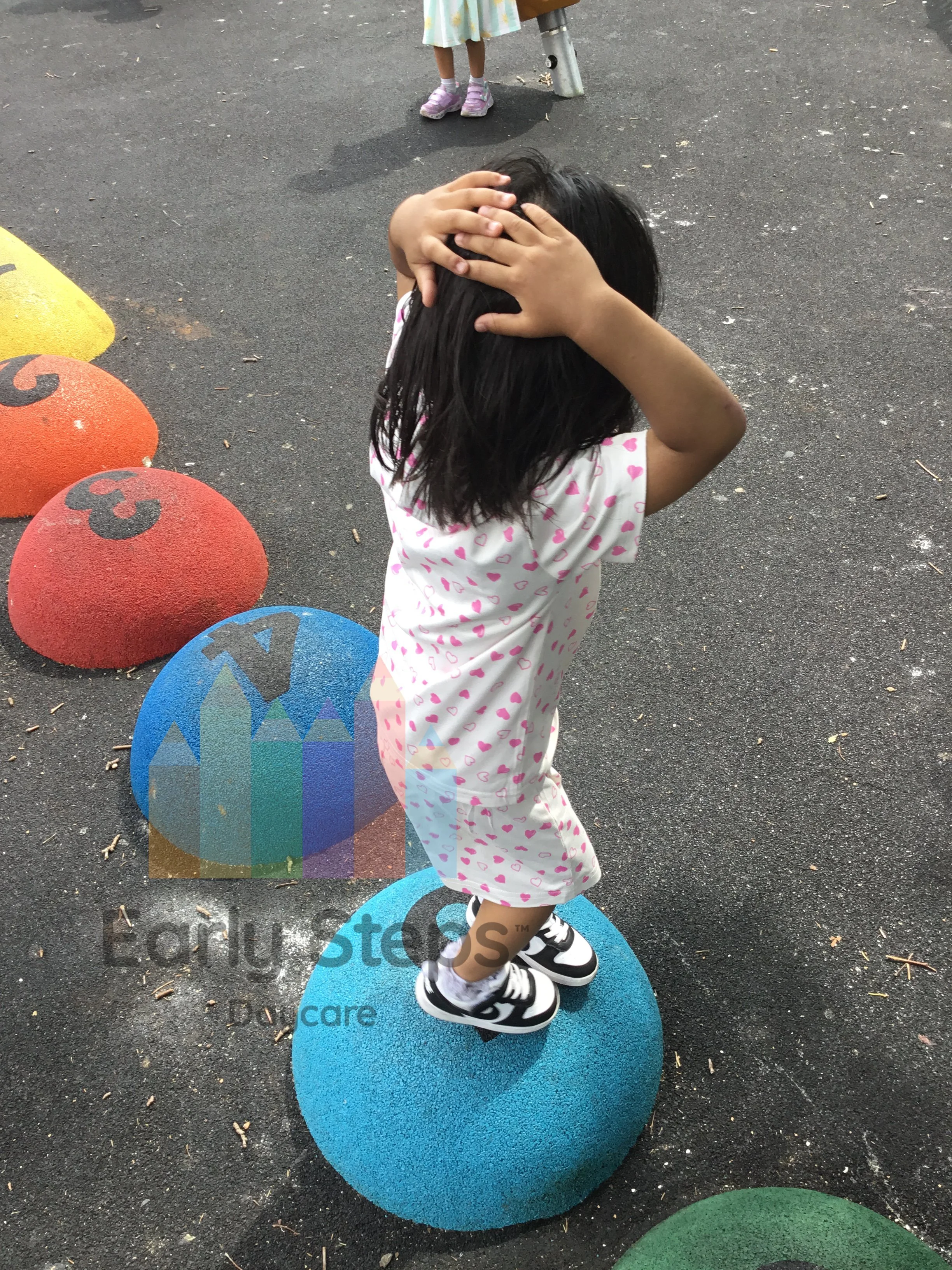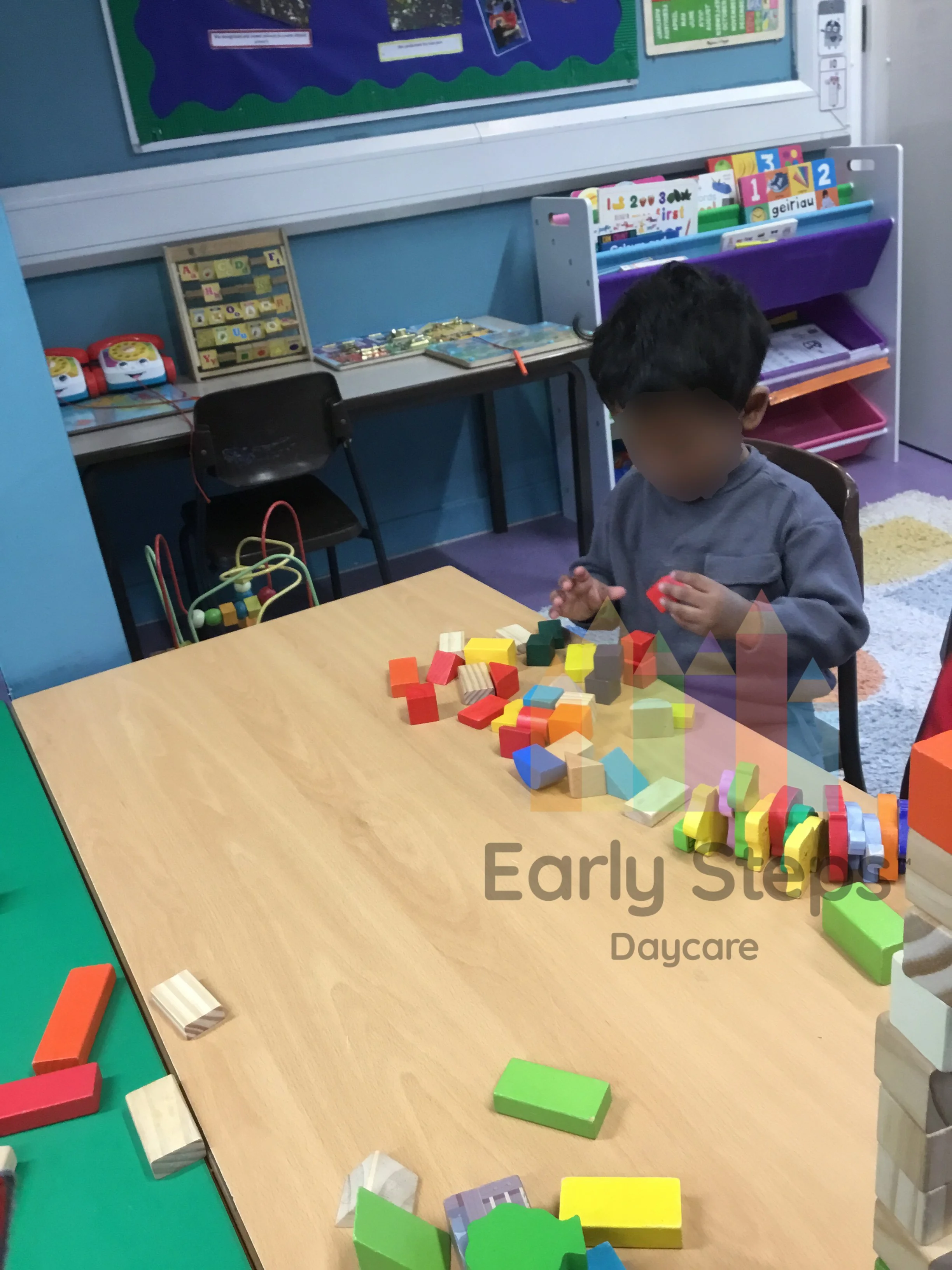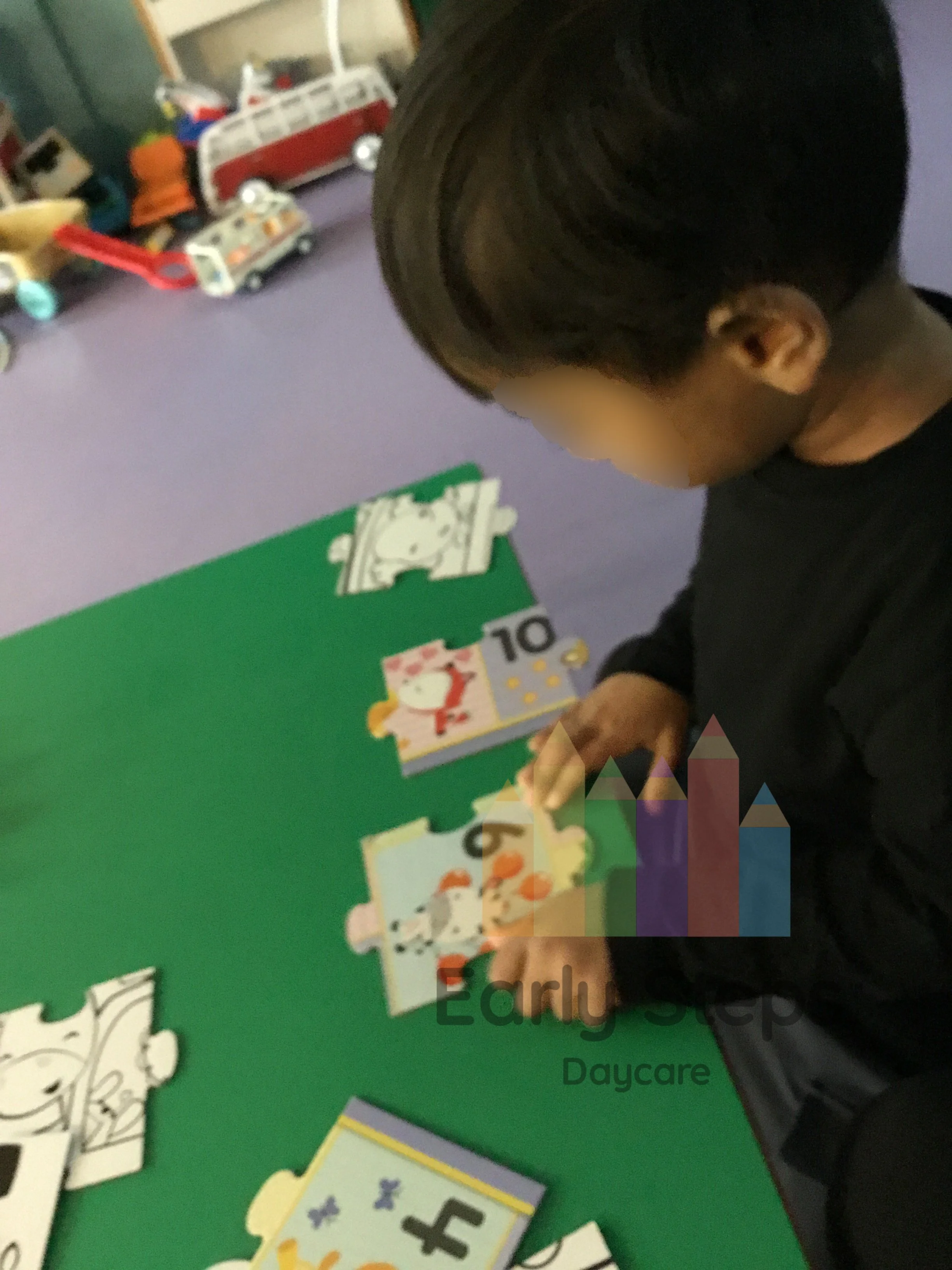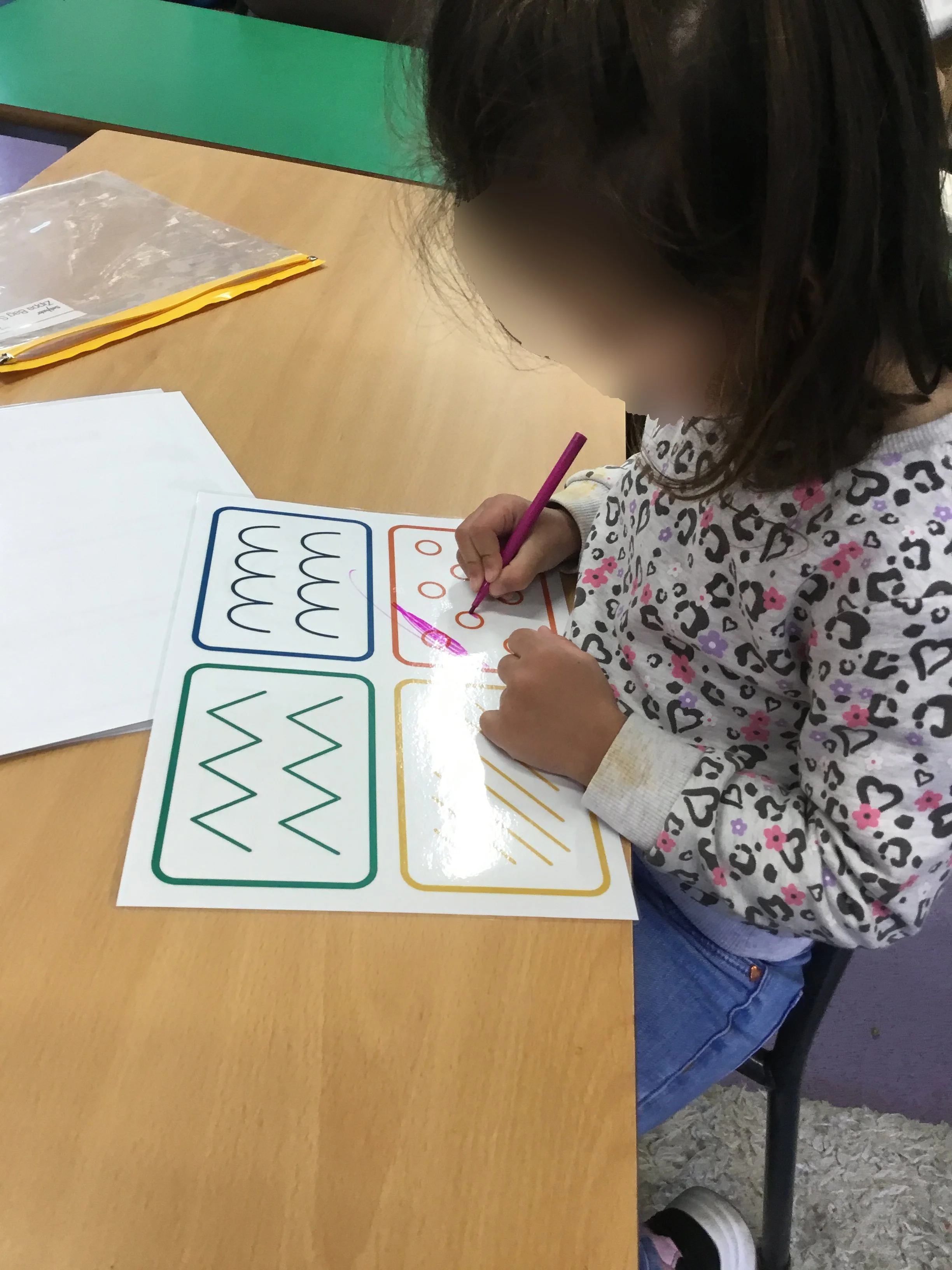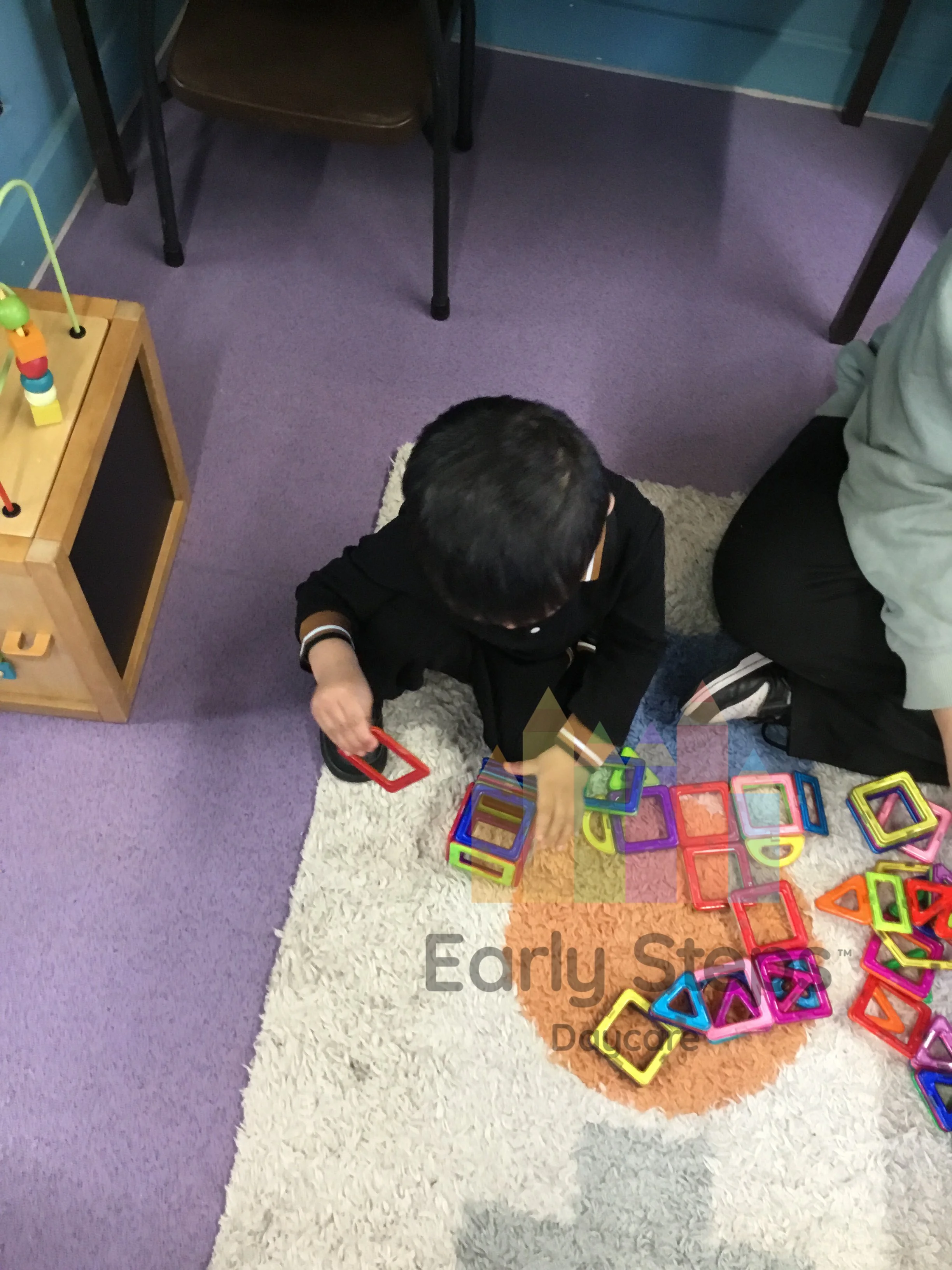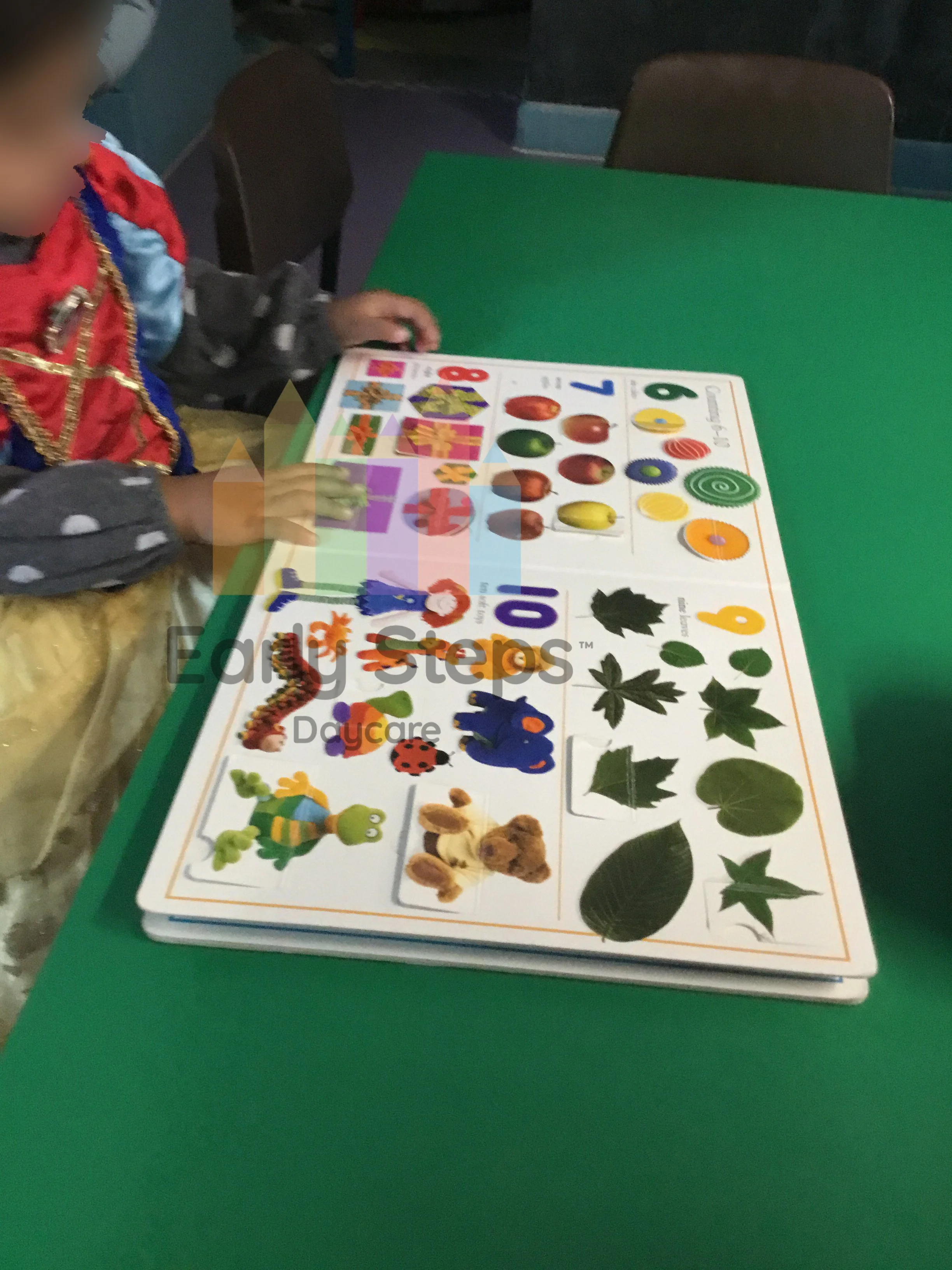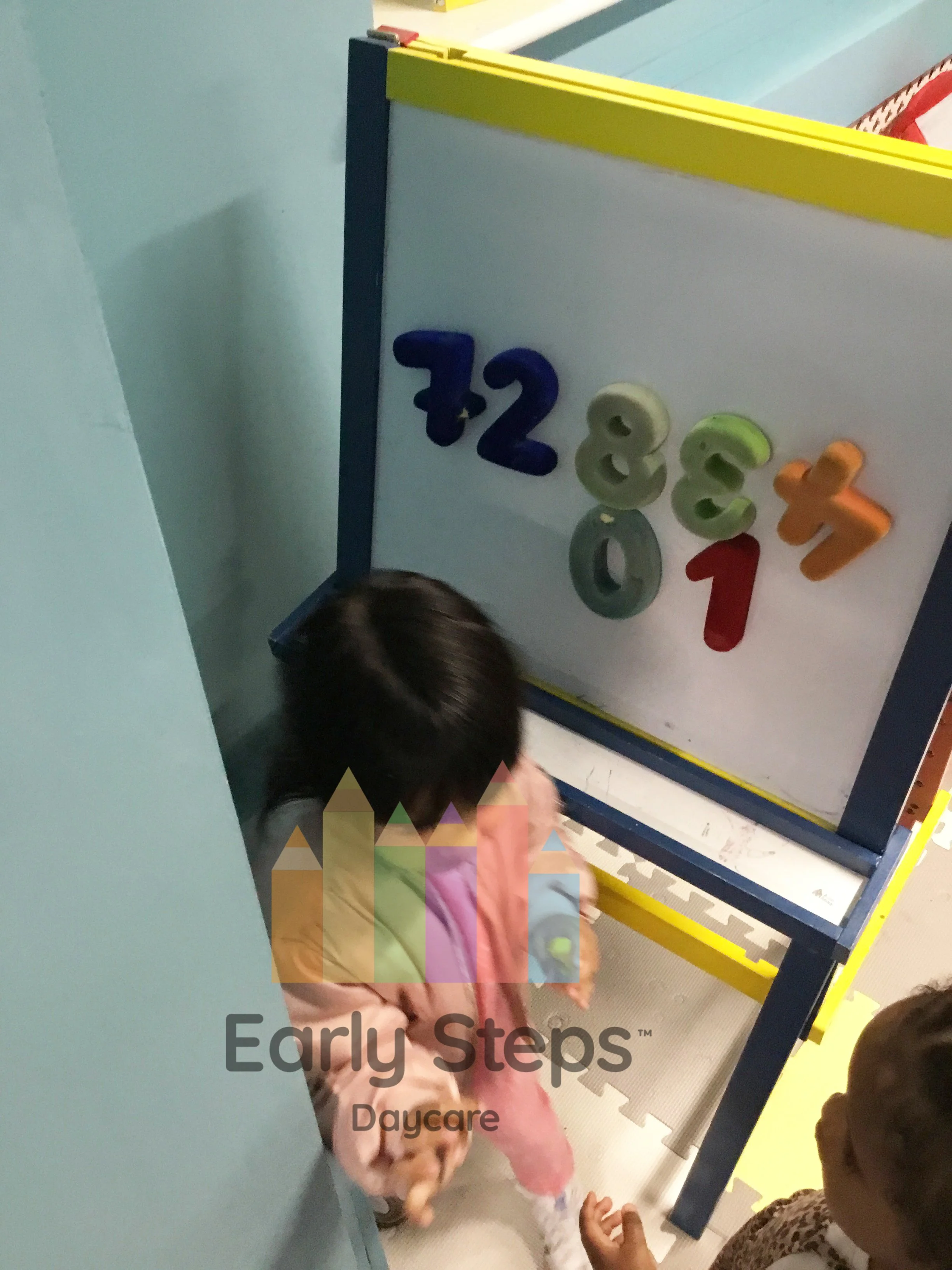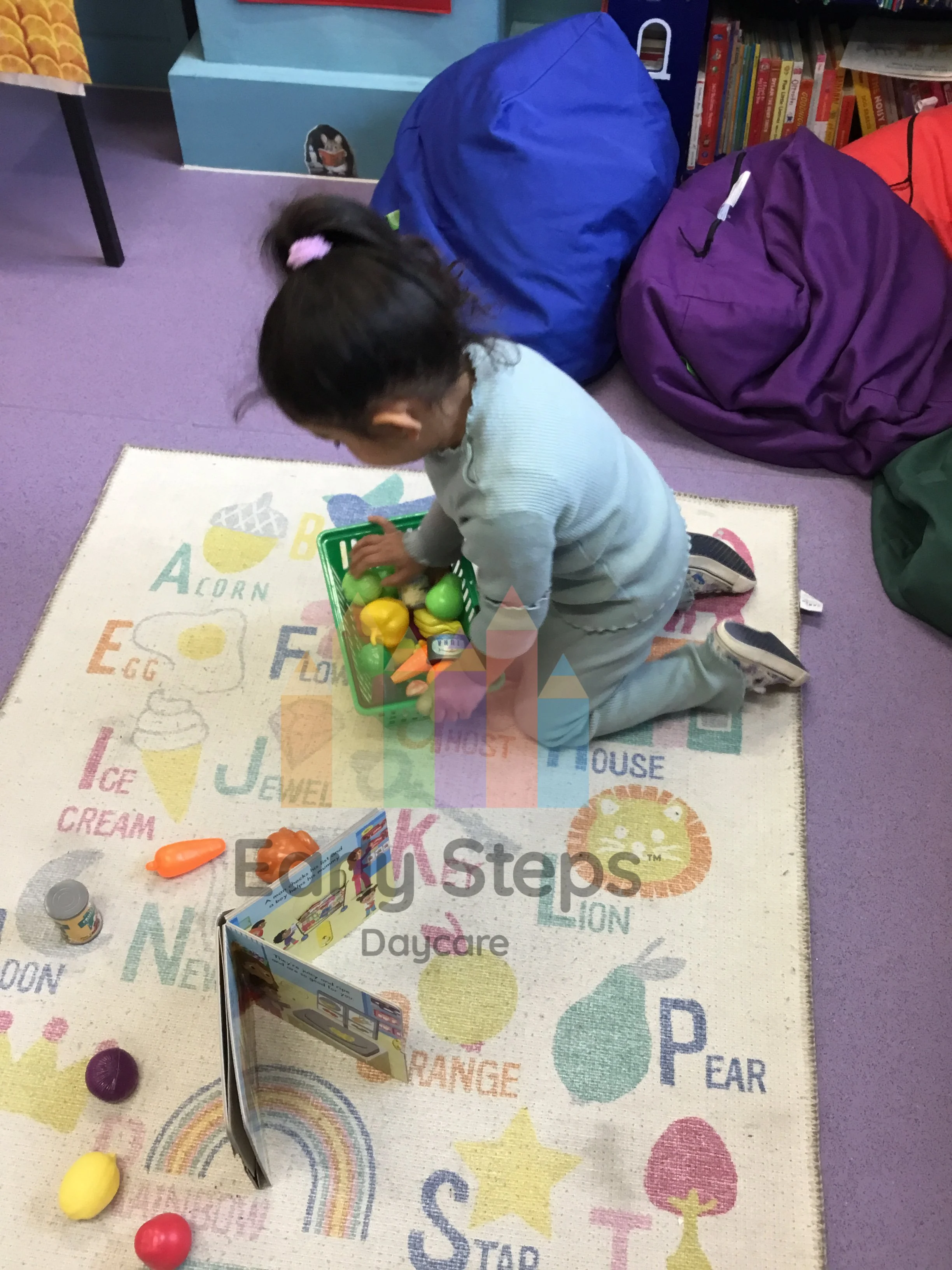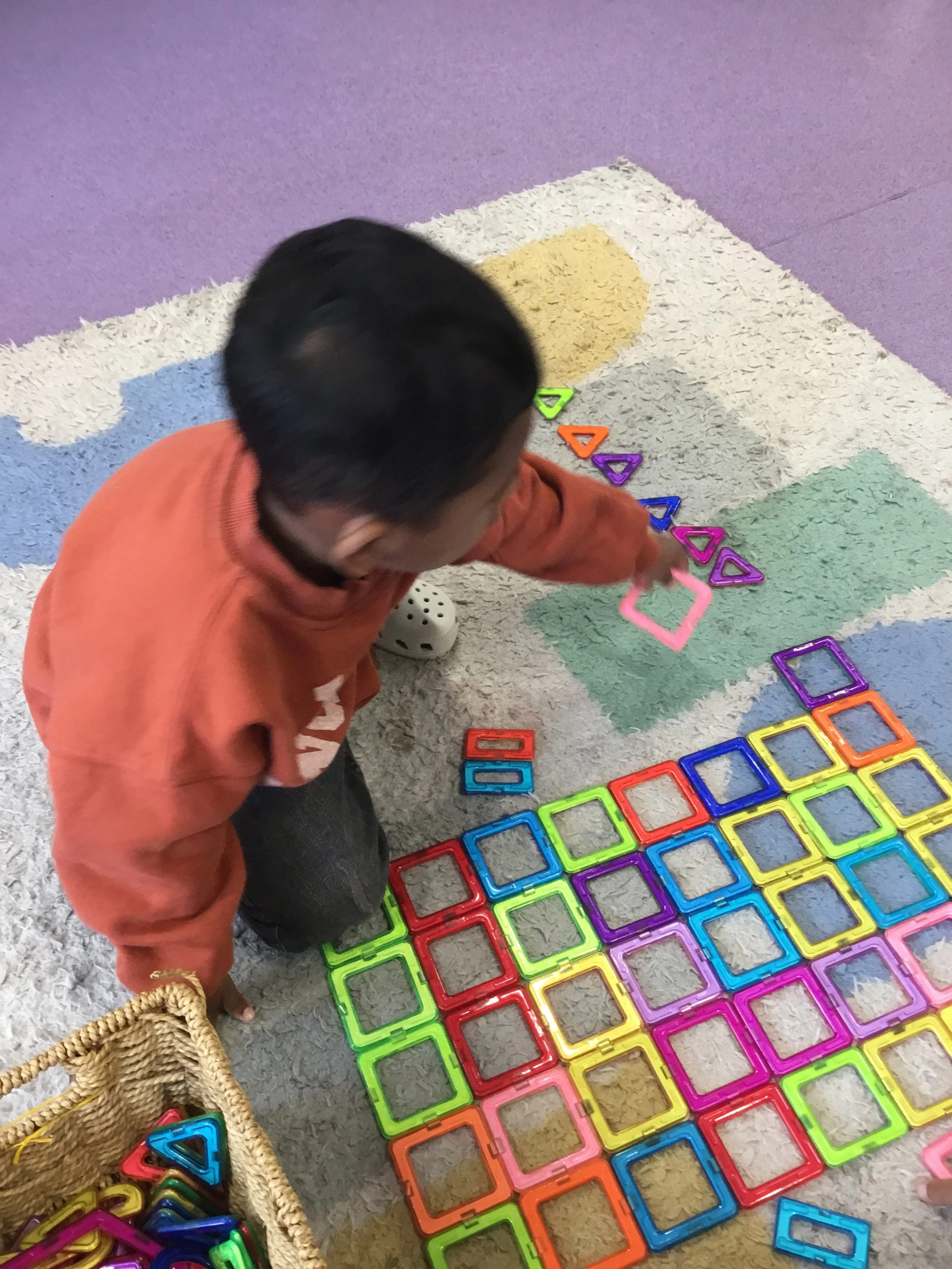
Mathematics in the EYFS
Mathematics is an important area of learning in the Early Years Foundation Stage, helping children develop a strong understanding of numbers, patterns, shapes, and measures. Through hands-on, practical experiences—such as counting objects, exploring shapes, comparing sizes, and solving simple problems—children begin to make sense of the world around them.
We create a fun and interactive environment where children enjoy exploring maths through play, conversation, and everyday routines.
Below are some pictures of our children enjoying and engaging in Mathematics activities throughout the years.
2024 to 2025
Exploring shapes and spatial awareness through hands-on play with wooden blocks – supporting early maths development in EYFS.
Children develop spatial awareness and early maths skills by arranging magnetic squares during hands-on learning activities.
Developing counting skills and number recognition through interactive play – supporting early maths learning in EYFS.
Developing spatial awareness and problem-solving skills by arranging shapes – supporting early maths learning in EYFS.
Children develop early mathematics skills and physical coordination by jumping on numbered bumps during outdoor learning activities..
Enhancing counting and sorting skills through hands-on shape play, supporting early maths development in EYFS..
Through hands-on puzzles, children enhance their number recognition and problem-solving skills as part of early mathematics learning
Children enhance fine motor skills and shape recognition by tracing over various shapes during early learning activities.
Through sorting magnetic shapes, children enhance their understanding of geometry, colours, and classification skills in early maths learning.
A child explores early numeracy by looking at numbers in a book, fostering number recognition and literacy skills.
Two children collaborate to sort numbers on an easel, building early maths skills and teamwork through interactive learning.
Children build early maths skills and colour recognition by sorting fruits and vegetables by shapes and colours during hands-on learning.
